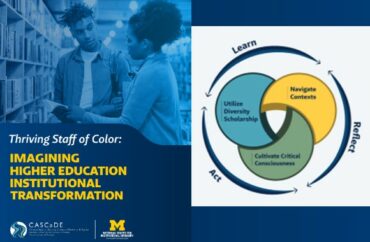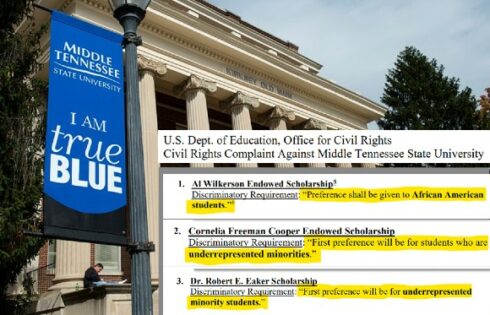
Report funded by Gates Foundation calls for ‘elevating [staff of color] knowledge’ in the workplace
A new University of Michigan report recommends ways higher education employers can “decenter whiteness” in their workplaces, including by counting staff by their race at meetings.
The report comes from the public university’s National Center for Institutional Diversity and its Change Agents Shaping Campus Diversity and Equity program. Its recommendations are based, in part, on interviews the authors conducted with 50 full-time “staff of color” at the university.
According to the report, universities need to do more to end the “structural racism” that is “embedded in the[ir] fabric,” and transform their institutions into “thriving” environments for staff of color.
The report begins with a quote from one of the interviewees: “‘I just have to sit there and be a rock in a river and let the water flow over me.’ This is how a participant in this study characterized their experience working at a Predominantly White Institution (PWI).”
One of the problems mentioned was expectations of professionalism on the job, according to the report.
Ángel, identified as a “Latinx” staff member, commented: “Any concept of professionalism is a huge one and how it’s been used or weaponized to particularly affect people of color.”
Ángel said black colleagues fear being labeled angry and unprofessional if they show much emotion on the job.
Staff also reported problems with microaggressions and “emotional labor,” or “conforming one’s emotions to the expectations of others” in the workplace, the report states.
The authors made a series of recommendations for universities to “decenter whiteness and promote race-conscious and equity-oriented workplace cultures,” according to the report.
These include counting white staff and staff of color in “decision-making meetings.” The recommendation also calls for “elevating SOC knowledge” in these meetings.
Another recommendation encourages institution leaders to ask themselves, “How are we actively seeking out feedback from colleagues to interrogate our own biases rooted in dominant racial ideas?”
The report concluded with a glossary of terms. One, “color-evasive racism,” is defined as behaviors similar to “colorblind racism” that “deter racial equity commitments and intentions espoused by higher education institutions.”
Another term, “cultural taxation,” is “the burden placed on people of color to enrich institutional diversity.”
Funding for the report came from the National Center for Institutional Diversity, Office of Diversity, Equity, and Inclusion, and the Bill & Melinda Gates Foundation.
MORE: Zero Republicans found in seven humanities departments at NC State U.
IMAGE: University of Michigan National Center for Institutional Diversity
Like The College Fix on Facebook / Follow us on Twitter






Please join the conversation about our stories on Facebook, Twitter, Instagram, Reddit, MeWe, Rumble, Gab, Minds and Gettr.